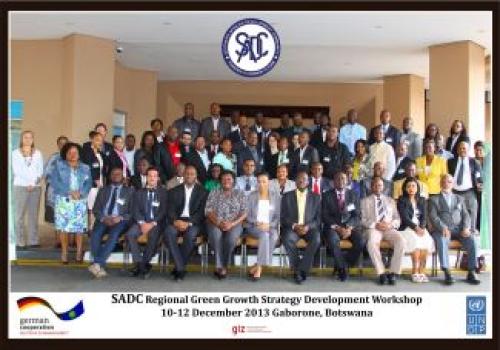SADC, says Climate Change in the region not only poses an environmental challenge but has serious economic and development implications with potentially disastrous human consequences.A Workshop on climate change took place at Gaborone Sun Hotel, from December 10-12, 2013 with the objective to brainstorm on the outcomes of Rio +20 and previous summits and determine priorities for the region.
It was envisaged that the workshop will develop elements necessary for implementation of the priorities with the ultimate objective of developing the Regional Green Growth Strategy and Action Plan.
In her speech made at the official opening of the Regional Green Growth Strategy Development workshop, SADC Director of Food Agriculture and Natural Resources, Mrs Margaret Nyirenda, said the region registered an economic growth of 4.3%. However, the region still faces many challenges that include among others increasing poverty, food security, high malnutrition rates, high unemployment, poor water and sanitation and high rural urban migration and these are compounded by Climate Change.
“We have witnessed overwhelming evidence of the devastating impacts of Climate Change such as recurrent cyclones that have often hit Mozambique and Madagascar as well as floods that have affected parts of Mozambique, Angola, Namibia, Botswana and Malawi. More recently, we have witnessed the most devastating cyclone to make landfall in Philippines that killed over 10,000 people and destroyed property and infrastructure worth billions of dollars”, she said.
These challenges will require serious adjustments in terms of policy and regulatory framework and a paradigm shift to a more clean development pathway.Mrs Nyirenda pointed out that such adjustments were not an easy task. They will require that the region fosters economic growth and development in a manner that ensures that natural assets continue to provide resources and environmental services on which the people’s well-being relies, which is commonly referred to as Green Growth.
“It is anticipated that Green Growth will provide a practical and flexible approach for achieving concrete, measurable progress across its economic and environmental pillars, while taking full account of the social consequences of greening the growth dynamic of economies” reiterated Mrs Nyirenda.
Participants from 14 countries attended the workshop.

